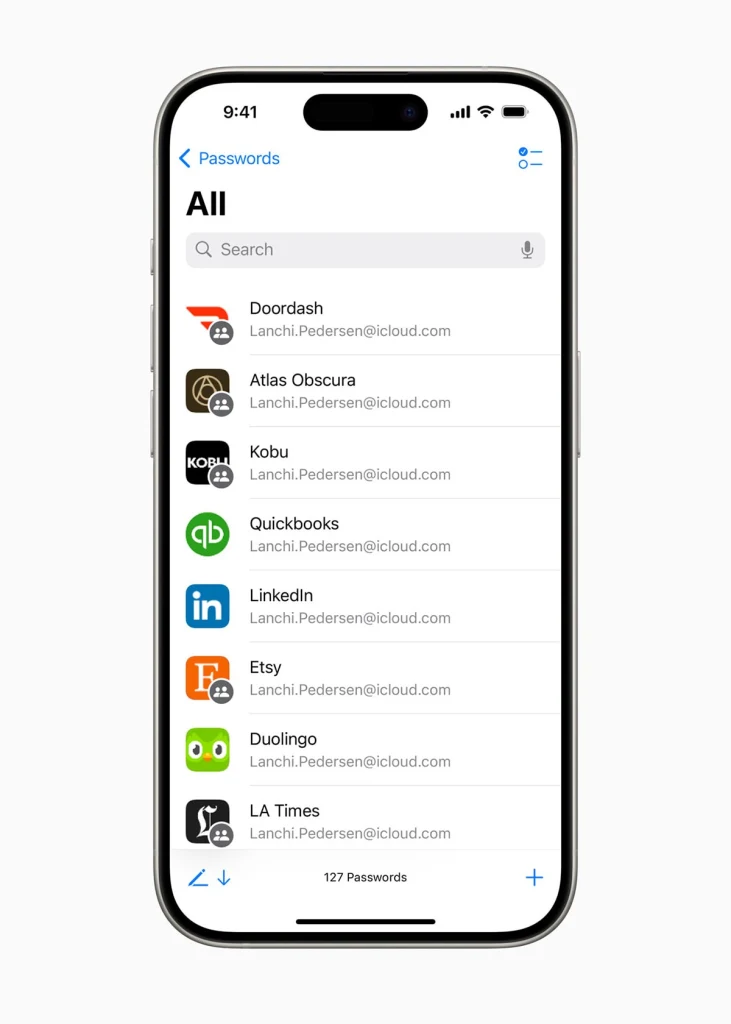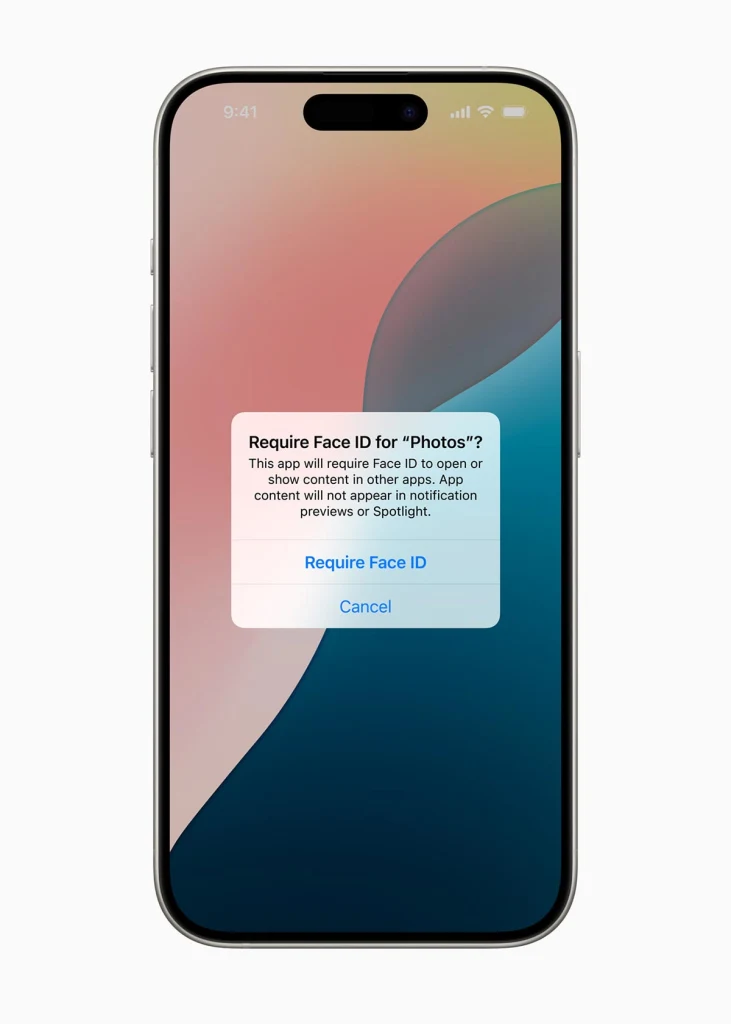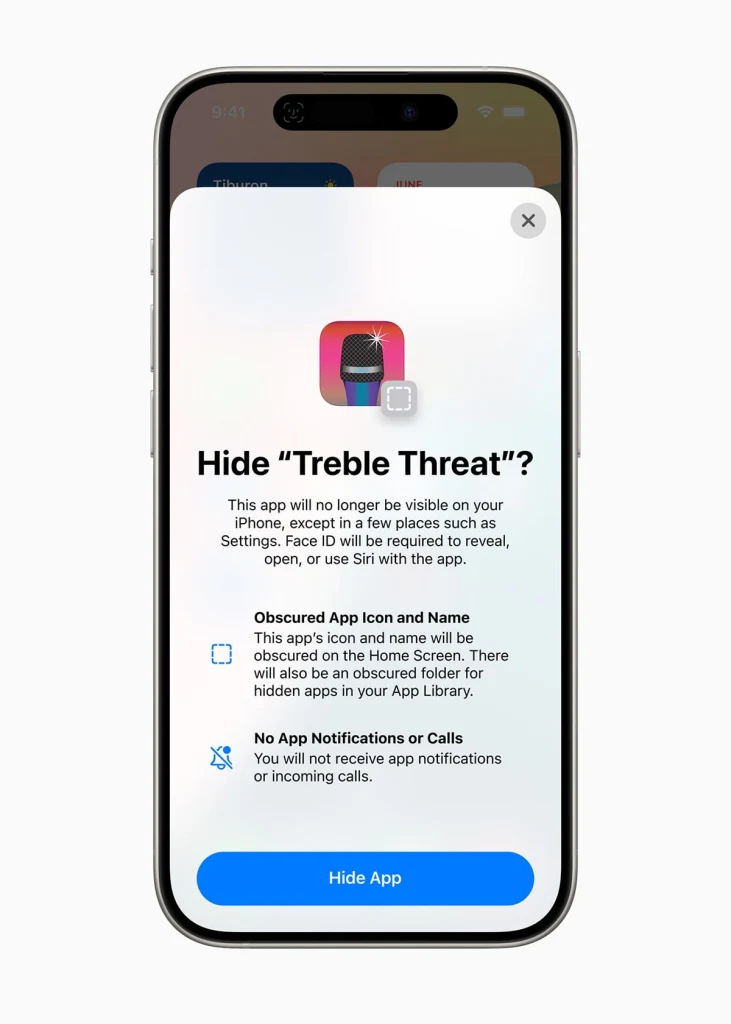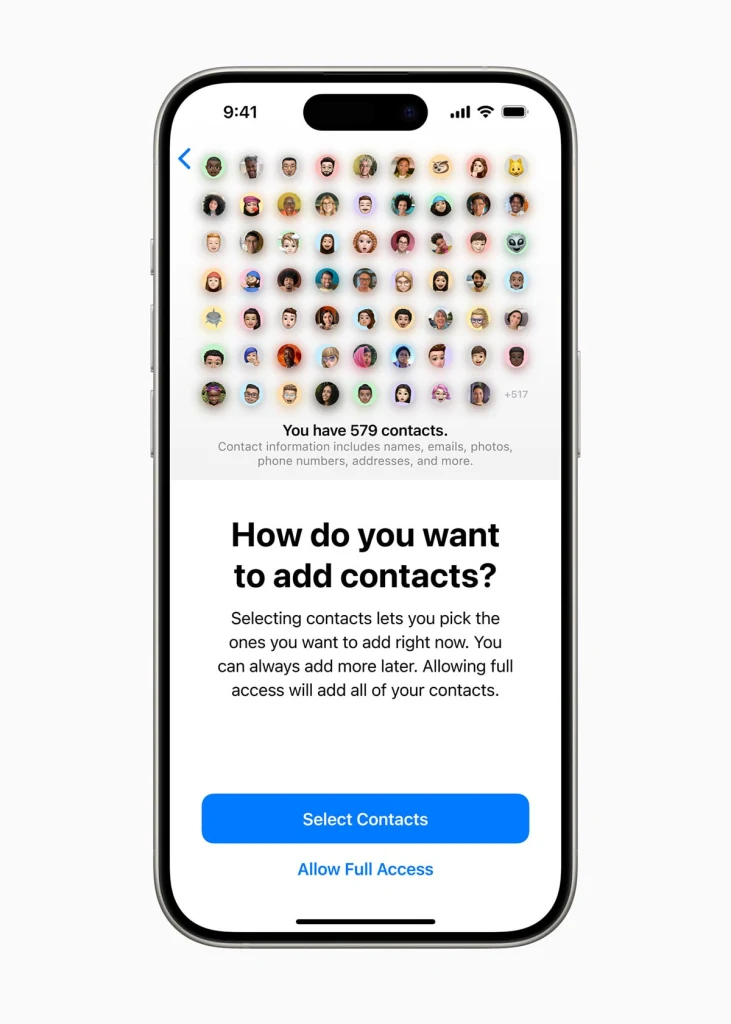Apple’s iOS 18 is packed with new features for the iPhone including new ways to customize your home screen layout, a revamped Control Center, and numerous productivity features. But iOS 18 also includes several privacy and security enhancements to help keep your data more secure. Here’s how to use them.
Manage your passwords, passkeys, and 2FA codes in the new Passwords app

Apple is introducing a completely new app in iOS 18 called Passwords. As its name suggests, Passwords is a dedicated password manager, and it allows iPhone owners to organize and control their passwords like never before.
The best thing about the Passwords app is that the user doesn’t have to do anything to set it up. You’ll find all the passwords that were once stored in your iCloud Keychain already imported into the app. From there, Passwords provides several categories that allow users to access the password or login info they are looking for quickly, including:
- All: This category shows you all your saved passwords. Tap on any password to see all the details about it.
- Passkeys: This category shows you all the passkeys saved to your account. Passkeys are password replacements and allow you to log into a site using your biometrics.
- Codes: This category will show you all the accounts for which you have multifactor authentication codes (known as MFA or 2FA) set up. If you are logging into a website and it asks for your authentication code, just go to this section of the Passwords app to quickly look it up.
- Wi-Fi: This category contains all the passwords for the various Wi-Fi networks you have joined.
- Security: This category shows you if any of your passwords are weak or have been compromised.
- Deleted: This category contains passwords you have deleted.
Another huge benefit of the Passwords app is that it allows you to share your passwords with others by creating shared groups. This is great for families where every member might want login information to a particular streaming service, for example. Passwords now make it easy to share this info.
Lock apps behind Face ID

In iOS 18, Apple is finally giving users the ability to use any app behind Face ID or Touch ID. This means that before the app is allowed to be launched, the person will be asked to verify themselves via their face or fingerprint. Previously, apps could only be locked behind Face ID or Touch ID if developers added the security feature themselves.
But why might you want to secure an app behind Face ID or Touch ID? The most obvious use case is if you let someone use your iPhone to make a phone call. If you’ve locked other apps behind Face ID this means the person using your phone can’t snoop around to see what’s saved in your your Notes or Photos app, for example.
To lock an app behind Face ID or Touch ID, do the following:
- Long press on the app’s icon.
- Tap “Require Face ID” from the contextual menu (it will say “Require Touch ID” if you have an iPhone with Touch ID).
- On the popup that appears, tap “Require Face/Touch ID.”
The next time you attempt to launch the app (or someone else does), it will not open until you’ve authenticated with your biometrics.
Hide apps on your iPhone

Apple is also adding the ability to hide apps that are installed on your iPhone. When an app is hidden, it will not show on any of the iPhone’s home screens. Anyone with access to your phone won’t be able to see that you have the app installed—giving you a greater level of privacy.
There are myriad reasons why you might want to hide certain apps. For example, you may want to hide apps that contain personal details about your health, or ones where you write down your daily thoughts. Whatever the reason for hiding an app, Apple makes it easy to do so:
- Long press on the app’s icon.
- Tap “Require Face ID” from the contextual menu (it will say “Require Touch ID” if you have an iPhone with Touch ID).
- On the popup that appears, tap “Hide and Require Face/Touch ID.”
- In the next popup, tap “Hide App.”
The app will now vanish from your home screen. However, you can still access it. You do this by swiping to your App Libary. Tap on the “Hidden” folder and then authenticate with your biometrics. All your hidden apps will appear, and you can use them as normal.
Control access to your contacts

Apps may occasionally ask for access to the contacts on your iPhone for various reasons. For example, social media apps can use your contact information to help you find friends. But your contacts also allow companies to build up a social graph around you, which can reveal all kinds of personal details, like who your doctors are.
Before iOS 18, you had to give an app access to all your contacts—or none. Now, in iOS 18, there is a middle ground: You can give an app access to only the contacts of your choosing. This allows you to let a messenger app, for example, know who your friends are, but not see the names of any doctors you have saved in your address book.
In iOS 18, when an app asks for Contacts access for the first time, you’ll be asked if you want to deny access, allow full access, or select access to contacts of your choosing. But you can also change the type of access you have granted to existing apps in the past. Here’s how:
- Open the Settings app.
- Tap on Privacy & Security.
- Tap Contacts.
- You’ll now see a list of apps that have requested Contacts access. Tap on the app whose access you want to change.
- On the next screen, choose None, Limited Access, or Full Access.
- If you choose “Limited Access” a screen will appear asking you to select the specific contacts you want the app to have access to. Tap the name of the contact so a blue checkmark appears next to it.
- Tap Done when finished selecting contacts.
The app will now have access only to the contacts you have granted it access to.
iOS 18 is now available as a free download. It requires an iPhone XR or later or an iPhone SE (2nd generation) or later.
Login to add comment
Other posts in this group

Every now and then, you run into a tool that truly wows you.
It’s rare—especially nowadays, when everyone and their cousin is coming out with overhyped AI-centric codswallop tha

Tesla released its quarterly earnings report on Tuesday, its first since the company’s chief executive, Elon Musk, took up residence in the Trump White House and immediately began trying to fire f

There’s never a dull day in the world of weight-loss medication. This week brought new restrictions on compounded GLP-1 medication, the cheaper, copycat versions of brand-name drugs that tel

In December 2023, I wrote an article exploring Apple CEO Tim Cook’s most likely successors, because t

“Meta profits, kids pay the price,” was the message delivered by dozens of grieving families at the doors of Meta’s Manhattan office on Thursday.
Forty-five families traveled from

The world’s auto industry is getting a shake-up from Chinese automakers that

There’s Blue Sky and then there’s Bluesky.
Blue Sky, a paper goods company
